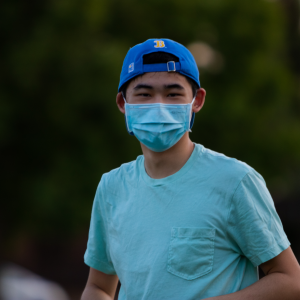

As part of a nationwide crisis, the decrease in the number of qualified staff has left special education classrooms under-resourced.
December 5, 2019
Since the beginning of the 2019-2020 school year, the special education department at Irvington has been understaffed, a result of a growing special education teacher shortage across the country that has left teachers and their paraeducator aides feeling burned out.
According to Principal Melsby, approximately 258 special education students rely on services provided by the special education department at Irvington High School, and are served by Special Day Classes (SDCs, small group classes that replace normal, general-education classes), the Resource Specialist Program (RSP, provides supplemental services to students who have general education teachers for the majority of the day), the Individualized Education Program (IEPs, written plans that describe the specialized educational services a student may need), and various other programs that federal law requires every school to have. In recent years, enrollment into the special education program has massively risen, but teacher hires have not kept up with this rise.
“There are around 200 special education students this year, up from 182 last year,” said Principal Melsby, “[And] the general trend in our enrollment is that it will rise [in the future].”
The increase in student enrollment has put the Irvington special education department in a tough spot, which had around 5 unfilled positions at the beginning of this year. According to the Irvington administration, positions are still being filled, and a candidate for one teaching position is in the process of being hired. However, in the absence of a steady stream of applicants, five current special education staff members have also been asked to “take a 1.2”, meaning that they are giving up their prep period to fill a vacancy. As a result, this absorption of a position has led teachers to burn out early on in the year.
“We just don’t have enough people to fill the positions that are open,” said Mrs. Stilwell, one of the ten full-time special education teachers on campus. “And that causes others to do extra work, which cuts down on the time they have per student. [Teachers] have students from the first bell to the last bell, and no time to do the preparation for the classes, no time to prepare for IEPs or the testing needed for IEPs. They very much are burned out, and it’s only October.”
Understaffed special education classrooms are not unique to Irvington. Schools across Fremont and the United States face a growing need for more special education educators, but new teachers aren’t entering the workforce quick enough to meet this demand. In the Fremont Unified School District, there are over 49 vacancies for special education jobs, 16 of which are full-time vacancies requiring a teaching credential and 33 of which are paraeducator aides. According to the Learning Policy Institute, 8 in 10 schools nationwide are looking for special education teachers. When facing these shortages, principals often resort to filling special education vacancies with underprepared teachers. This could mean hiring a teacher certified in a field other than special education, an intern with just a few weeks of training, or—in the most extreme cases—a teacher on an emergency credential who has no training whatsoever. In fact, in California, new special education teachers with unqualified credentials outnumber those who are fully prepared 2 to 1.
However, besides being required by law, special education remains an important pathway for students to receive an education that they would otherwise wouldn’t have.
“Not all students learn the same way, said Ms. Stilwell. “If you take special education away and put everyone in general ed, it’s not only going to affect special education students, but it’ll also affect general-education students because people who are unable of doing work can be more prone to act out and disrupt class, really affecting the emotions of the people that can’t keep up. [But] just because a student’s brain processes things differently or has a different outlook than the general population doesn’t mean they don’t have the right tools for life, that they don’t have the right to learn as much as they can and be as independent as they can.”
For now, in the absence of proper staffing, the special education staff at Irvington have made accommodations to ensure that every student has a teacher.

